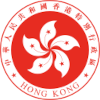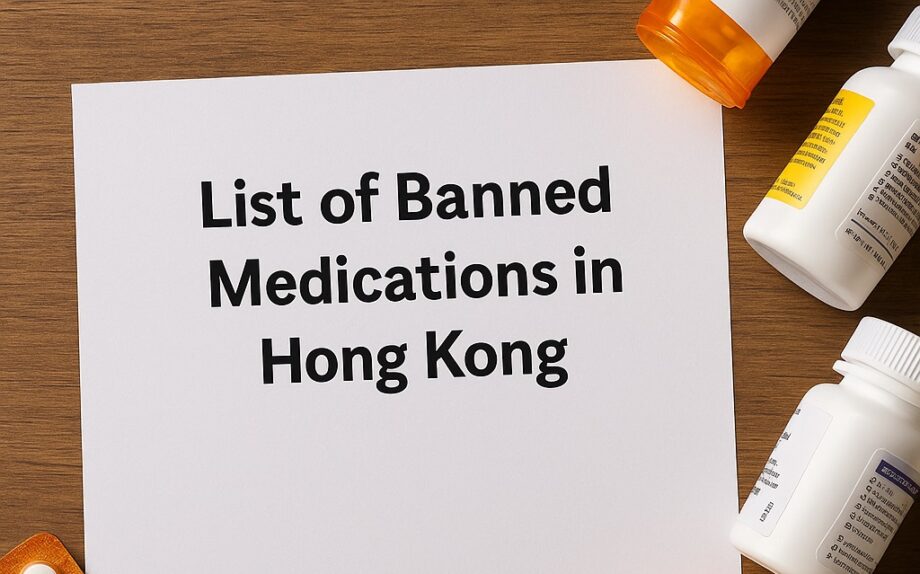The regulatory framework for medicines in Hong Kong is anchored in the Pharmacy and Poisons Ordinance (Cap. 138) and its subsidiary regulations. Under this system, pharmaceutical products must be registered before sale, and different categories of “poisons” are delineated for supervision. (drugoffice.gov.hk)
Moreover, the Dangerous Drugs Ordinance (Cap. 134) (banned medications) governs controlled substances including illicit narcotics, stimulants, hallucinogens, and psychotropic drugs. (Fmyly)
In practical terms:
- A medicine must carry a Hong Kong registration number (e.g., “HK-XXXXX”) to be legally sold. (dh.gov.hk)
- Importing or exporting pharmaceutical products without the proper licence is prohibited and penalties apply. (Hong Kong Customs)
In clinical settings, we often observe confusion among patients arriving from abroad who assume that globally-available medications are automatically acceptable in Hong Kong — in fact they may be unregistered, controlled, or even banned.
What “Banned Medications” Means in Hong Kong
When we say “banned medications” in this jurisdiction, the term typically refers to:
- Substances classified as dangerous drugs under the Dangerous Drugs Ordinance (Cap. 134) — meaning importation, possession and supply may incur criminal sanctions.
- Medicines unregistered under the Pharmacy and Poisons Ordinance, making their sale or distribution illegal.
- Substances removed from market registration (for example, de-registered due to safety concerns).
It does not simply mean “hard to obtain” — many banned substances carry zero legal framework for lawful supply for human use in Hong Kong.
Notable Examples of Banned or Deregistered Drugs
Cannabidiol (CBD)
Though CBD is legal (under prescription) in many jurisdictions, Hong Kong has taken a stricter stance. From 1 Feb 2023 the government moved to classify CBD as a dangerous drug under the Dangerous Drugs Ordinance. (Wikipedia)
Therefore, possession of CBD products without appropriate authorisation may lead to seizure or prosecution.
Sibutramine
The appetite-suppressant drug Sibutramine (formerly marketed under brand names such as Meridia/Reductil) was withdrawn in multiple markets, including Hong Kong, due to cardiovascular safety risks. (Wikipedia)
Although it may still exist in some online “weight-loss” products, it is not legally supplied in Hong Kong.
Unregistered/Unapproved Supplements & Medicines
Beyond named “drugs”, many overseas medicines or supplements may be unregistered in Hong Kong. Under the “Search Drug Database” of the Drug Office of the Department of Health, members of the public can check registration status before purchase. (drugoffice.gov.hk)
Individuals importing such unregistered products can risk legal action or loss of the product.
How to Check of a Banned Medications
- Visit the Drug Office’s Search Drug Database and input the medicine’s active ingredient or registration number. (drugoffice.gov.hk)
- Check the packaging for proper Hong Kong registration: the label should display “HK-xxxxx” and other required information. (dh.gov.hk)
- If importing from abroad: confirm whether the active ingredient appears on the “Poison List” or “Dangerous Drugs” schedule. (drugoffice.gov.hk)
- Always consult a qualified medical practitioner when uncertain.
Why Banned Medications Exist: Safety, Quality & Public Health
In clinical practice, we often observe that medicines banned or de-registered in Hong Kong have been so due to one or more of the following reasons:
- Serious adverse reactions (e.g., cardiovascular events with sibutramine)
- Lack of robust registration data (safety/efficacy not established)
- High potential for misuse/abuse (in the case of controlled substances)
- Quality control problems (counterfeit or substandard medicines)
The government regulatory framework aims to protect public health by ensuring that only medicines meeting safety, efficacy and quality criteria are marketed. (drugoffice.gov.hk)
Which Drugs Are Not Banned in Hong Kong?
Despite the tight regulatory environment, several well-known therapeutic agents — often controlled in other countries — remain legal but prescription-only in Hong Kong.
1. Modafinil and Armodafinil
Both Modafinil and Armodafinil are not banned in Hong Kong but are regulated as prescription-only medicines (P1 poisons) under the Pharmacy and Poisons Ordinance. These wakefulness-promoting agents (classified internationally as eugeroics) are used clinically to treat narcolepsy, shift-work sleep disorder, and sleep apnoea-related fatigue. They are not scheduled under the Dangerous Drugs Ordinance, meaning possession with a valid prescription is lawful.
According to the European Medicines Agency, modafinil remains a legitimate therapeutic option for sleep disorders when used under medical supervision (EMA Modafinil Assessment Report
2. Pregabalin
Pregabalin (Lyrica) is available in Hong Kong as a Prescription-Only Medicine for neuropathic pain, fibromyalgia, and generalised anxiety disorder. Unlike in certain other jurisdictions (e.g., the UK, where it’s a controlled drug), pregabalin is not classified as a dangerous drug locally — but must be dispensed by licensed pharmacies upon a physician’s prescription.
3. Zopiclone
Zopiclone, a short-term hypnotic used for insomnia, is also legal and available under prescription in Hong Kong. It falls under the Part I poison category rather than the Dangerous Drugs list. Physicians in Hong Kong commonly prescribe it for transient or short-term sleep disorders.
However, zopiclone is monitored closely due to its dependence potential; long-term or high-dose use is discouraged under the Hong Kong Medical Council’s prescribing guidelines.
Together, these examples demonstrate that “not banned” does not mean “freely available.” Instead, they are lawfully regulated prescription medicines requiring professional oversight.
Summary for General Readers
- Hong Kong maintains strict controls on medicines and substances: unregistered medicines or dangerous drugs may be effectively banned.
- A visible registration number + listing in the official database are strong indicators of legality.
- Commonly banned or controlled substances include CBD (without licence), sibutramine, and many overseas supplements not properly registered.
- If you’re travelling, importing, or prescribed a medicine abroad, check registration status in Hong Kong — ignorance is not a defence.
Disclaimer: This article is for informational purposes only, and does not constitute legal, medical or regulatory advice. Always consult relevant professionals when dealing with medication compliance issues.

